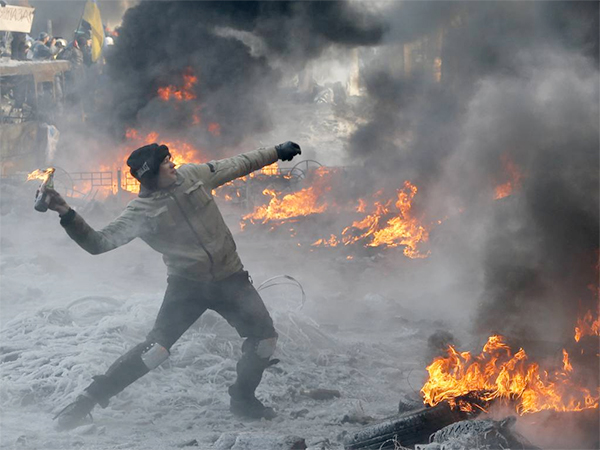In recent weeks, Ukraine has been in the forefront of the news. From the siege of the independence square in Kiev, to the ouster of former president Viktor F. Yanukovych and attempts to form a new government, many changes are occurring in Ukraine.
Since its independence from the Soviet Union 23 years ago, Ukraine has always been mismanaged and the economy was weakened by “corruption, favoritism, patronage, and outright theft.” This outlook on the economy has influenced the ethnic Russians living in Ukraine to see Russia as a more successful country than Ukraine, especially in Crimea. A study has shown that Ukraine’s economy has shrunk by 30 percent while Russia’s has grown by 20 percent.
As Ukraine’s economy has taken a turn for the worse, the European Union and the West feel that they cannot help Ukraine at this time for fear of Russia retaliating. Russia might place new tariffs, increase prices for natural gas, and cut off relations with Ukrainian factories and businesses. This would be very problematic since Ukraine depends on Russia for 60 percent of its energy supplies. Also, about a quarter of Ukraine’s trade is solely with Russia. A disruption of this trade between these two countries will be devastating for Ukraine and will further strain their relationship and economy. Catherine Ashton, European Union’s policy chief, stated that, “Europe would offer ‘support, not interference’ and urged Ukrainians to maintain good ties with Russia.” Even if the European Union agrees to help out, it will be very difficult for them to come up with money to help Ukraine. Ukraine has already stated that it needs 35 billion dollars in aid and loans for the next couple of years to pay increasing amounts of debt and salaries. Their foreign-country reserves have already been cut down to 12 billion dollars and the value of Ukrainian currency is plunging rapidly. The country has been shut out of bond markets. The European Union and the United States have already stated that Ukraine can also get some aid from the International Monetary Fund.
Another possible source of help for Ukraine is the European Union’s economics commissioner, Olli Rehn, who has a called for a donor’s conference in Ukraine. Rehn stated, “They ‘stand ready to provide substantial financial assistance’ alongside the International Monetary Fund ‘once a political solution is in place’ and a new government presents a ‘convincing’ economic plan.” But member states are not eager to provide aid to Ukraine unless they can assure that corrupt government officials or oligarchs in the country will not misuse it. If Russia insists on Kiev repaying their existing loans in full amount then they can worsen economic situation even further and weaken any new government that will be formed. One protester said, “ ‘We need an independent state. Either someone comes to save us or it will be total bankruptcy,’ ” In order to increase economic growth, Ukraine needs to ensure safety and security in the country so that businesses will regain confidence and will chose to operate in Ukraine.
Politicians are trying to resolve this crisis including the U.S secretary of state John Kerry. Whatever solution is reached, Ukraine needs to ensure that their new government is, “honest and transparent and does not repeat the mistakes of the past.”

